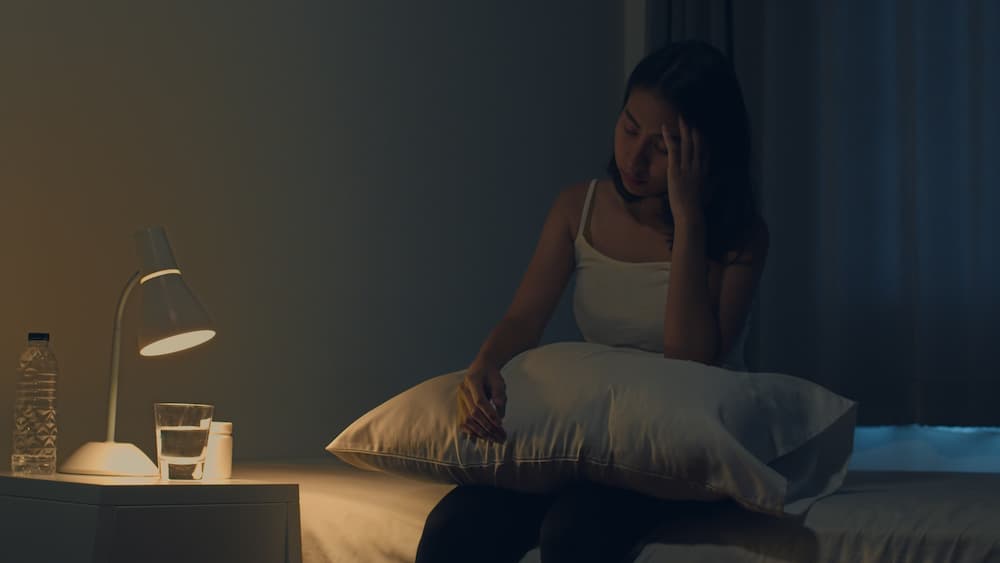Struggling to fall asleep or stay asleep? You’re not alone. Millions of people worldwide experience sleep difficulties, often without realising that psychological factors may be at the core of the problem.
While occasional restless nights are normal, chronic insomnia can take a toll on your physical and mental health. Beyond fatigue and brain fog, poor sleep can exacerbate anxiety, depression, and stress.
Why Is Sleep So Hard? The Psychology of Insomnia
Sleep is a biological necessity, but it’s also deeply influenced by your thoughts, emotions, and behaviours. Our fast-paced, always-connected lifestyle often leads to a state of hyperarousal, where the brain remains overstimulated, even at night.
When you’re lying in bed, your body may be tired, but your mind is racing. You worry about tomorrow’s deadlines. You replay a conversation from the day. You check your phone one last time. All of this creates a perfect storm for sleeplessness.
According to SA Health (2025), mental health conditions like anxiety, depression, and PTSD frequently lead to disrupted sleep patterns, such as early awakenings, nightmares, or difficulty falling asleep. The relationship is bidirectional: sleep affects mental health, and mental health affects sleep.
What Causes Poor Sleep? The Top Psychological and Lifestyle Factors
Several interrelated factors contribute to sleep disturbances. Here’s what science says:
1. Stress and Worry
Whether it’s work, finances, or personal relationships, stress activates your nervous system and raises cortisol levels, keeping your body in a state of alertness, which makes it harder to fall and stay asleep (Ramar et al., 2021).
2. Negative Thought Patterns
Internal dialogue like “I’ll never fall asleep” or “If I don’t sleep, I’ll fail tomorrow” reinforces anxiety about sleep and creates a vicious cycle. These cognitive distortions can sabotage even the best bedtime routine.
3. Poor Sleep Habits
Irregular sleep schedules, screen use before bed, and mentally stimulating activities can confuse your body’s circadian rhythm. Sleep hygiene matters more than we think.
4. Unhealthy Lifestyle Choices
Lack of exercise, high caffeine or alcohol intake, and a poor diet can all impact sleep quality. Making small, sustainable changes to these areas can dramatically improve your ability to sleep better.
5. Underlying Mental Health Conditions
Sleep problems are often a symptom, and a cause of mental health issues such as depression and PTSD. Without addressing the root psychological factors, sleep may remain elusive.
How to Sleep Better: Treating Insomnia with CBT-I
What Is CBT-I?
Cognitive Behavioural Therapy for Insomnia (CBT-I) is a gold-standard, evidence-based therapy recommended by sleep experts and clinical psychologists. Rather than relying on sleep medications, CBT-I focuses on changing the thoughts and behaviours that interfere with sleep (Walker et al., 2023).
Benefits of CBT-I:
- Non-medication, long-term solution
- Backed by decades of clinical research
- Improves both sleep quality and mental well-being
How CBT-I Works:
1. Identify Sleep-Sabotaging Thoughts:
CBT-I helps uncover negative beliefs like “If I don’t fall asleep now, I’m doomed tomorrow.”
2. Challenge and Replace Unhelpful Thinking:
These thoughts are reframed into more balanced beliefs using cognitive restructuring techniques.
3. Change Sleep-Disrupting Behaviours:
CBT-I introduces tools such as:
- Stimulus Control: Using your bed only for sleep
- Sleep Restriction: Limiting time in bed to boost sleep efficiency
- Relaxation Techniques: Deep breathing, mindfulness, and guided imagery
Where to Find Help for Insomnia in Australia
At Sehat Psychology, we offer CBT-I therapy in Adelaide with a certified CBT-I practitioner accredited by the Australian Psychological Society (APS). Whether you’ve been dealing with sleep problems for weeks or years, support is available.
Contact us to book a CBT-I consultation:
📞 Phone: (08) 7079 9529
📧 Email: admin@sehatpsychology.com.au
You don’t have to navigate sleep difficulties alone; our team is here to help you build a healthier relationship with rest and well-being.
Insomnia is more than just a bad night’s sleep, it’s a complex interaction between mind, body, and behaviour. Understanding the psychological roots of sleep disruption is a critical first step in healing.
If you’re tired of feeling tired, CBT-I may be the breakthrough you’ve been looking for. With the right tools, support, and mindset, restful, restorative sleep is within reach.
